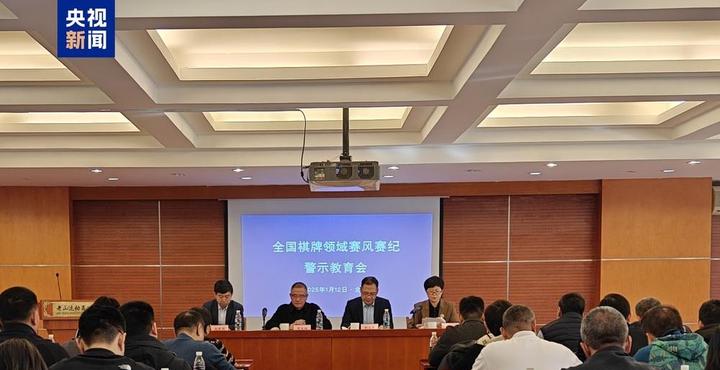Chinese Xiangqi Match-Fixing Scandal Leads to Mass Bans
China’s chess watchdog has issued lifetime bans to three top players including Zhao Xinxin, along with varying suspensions to 38 others, in one of the biggest match-fixing scandals in Chinese Xiangqi history.

The Chinese chess (Xiangqi) community was rocked on January 12th when China’s chess governing body announced severe punitive measures against 41 players and officials involved in widespread match-fixing. The investigation, which began in April 2023, has led to unprecedented sanctions that have effectively decimated the competitive landscape of this traditional Chinese board game.
The most severe punishments were handed to three elite players who received lifetime bans and had their professional titles revoked. Among them is Zhao Xinxin, considered one of China’s top Xiangqi talents. Another 34 individuals received competition bans of varying lengths, while four others received official reprimands.
This scandal has exposed deep-rooted integrity issues in professional Xiangqi. The competitive circuit operated with an elaborate match-fixing system, where players would arrange outcomes in advance and profit from gambling. The investigation revealed that the problem extended far beyond a few bad actors, implicating many of China’s most prominent players.
The severity and scale of the punishments reflect the authorities' determination to clean up the sport. The Chinese Xiangqi Association has adopted a “zero tolerance” approach, aiming to restore public confidence in competitive integrity. This marks a watershed moment for Xiangqi, which has been played in China for over a thousand years and remains deeply embedded in Chinese culture.
The immediate impact is severe - many of the country’s top-ranked players have been removed from competition. This has created an unprecedented void in Chinese Xiangqi’s competitive hierarchy. Among those banned, several were legitimate contenders for national championships and had dedicated fan followings.
The cleanup operation signals a new era for Chinese Xiangqi. While the short-term impact is undeniably damaging, the governing body sees this as a necessary step to rebuild the sport’s credibility. Future tournaments will implement stricter oversight and monitoring systems to prevent match-fixing.
This case also highlights broader challenges in professional sports governance in China. The intersection of traditional games, professional competition, and gambling presents complex regulatory challenges. The chess authority’s decisive action may serve as a template for other sports bodies facing similar integrity issues.
For the immediate future, Chinese Xiangqi faces a period of reconstruction. New talents will need to emerge to fill the vacuum left by the banned players. More importantly, the sport must rebuild its reputation and convince both participants and spectators that competitive integrity has been restored.
The Chinese Xiangqi Association has emphasized that this crackdown, while painful, is essential for the sport’s long-term health. They have committed to maintaining high ethical standards and nurturing a new generation of players who will uphold the traditional values of this ancient game.